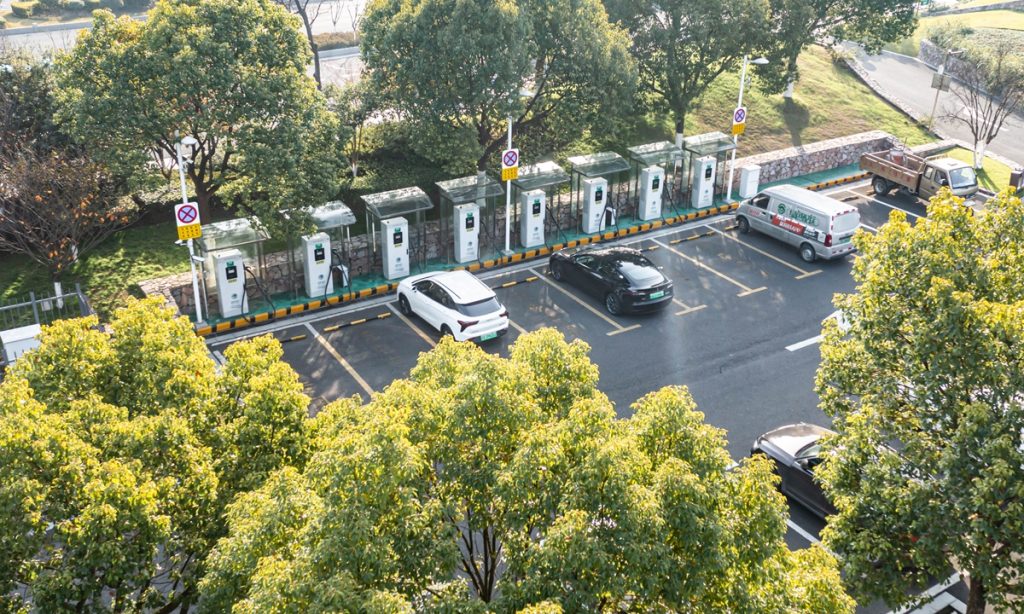Shanghai plans to convert all buses, cabs to green NEVs by 2027

Shanghai authorities have released a work plan lately that aims to convert all buses and taxi fleets in the city to new-energy vehicles (NEVs) by the end of 2027. The plan comes as more Chinese cities are doubling down green efforts in the transport sector.
The plan, titled "Shanghai large-scale infrastructure and equipment renewal special work plan (2024-2027)," was jointly issued by the Shanghai Municipal Development and Reform Commission and other relevant departments, aiming to promote the transformation and upgrade of transportation infrastructure and equipment toward green, digital, and intelligent solutions.
The plan sets the annual vehicle renewal rate at above 9 percent of the total, and under the plan, a total of 6,200 buses and 11,000 cabs will be renewed before 2027.
It also calls for accelerating the electrification of the city's taxi fleet. All newly added or renewed cruising taxis in principle should use NEVs, and it is estimated that the number of renewed taxis will reach 2,800 units per year.
The plan also encourages the city to actively pilot intelligent taxis and explore the application of autonomous driving technology in the taxi sector in certain areas with suitable conditions.
With regard to city buses, the plan stipulated that all newly added and renewed vehicles should be fully converted to new energy models, with an annual renewal of approximately 1,550 new -energy public buses.
The plan also encourages the application of hydrogen fuel cell vehicles in freight transportation. It calls for advancing the research and application of hydrogen fuel cell vehicles while accelerating the improvement of basic infrastructure such as hydrogen refueling stations.
According to the city's earlier transportation plan, more than 80 percent of buses and taxis in Shanghai will be powered by renewable energy by 2025.
The city expects fully-electric cars to make up for more than half of auto sales in 2025. It also sets the goal of expanding the number of hydrogen fuel cell vehicles to 10,000 by that time.
Beijing city also plans to promote NEV development. According to a recently announced action plan, the Chinese capital city aims to boost the number of running NEVs to 2 million by 2025.
The efforts by Beijing, Shanghai and may other Chinese cities align with the national goal of peaking carbon dioxide emissions by 2030 and achieving carbon neutrality by 2060.
According to the China Passenger Car Association, sales of NEVs in China's domestic market expanded 36.9 percent year-on-year to reach 878,000 units in July. The number means that the sales of NEV in July accounted for 51.1 percent of all auto sales, up 15 percentage points from the same period last year.